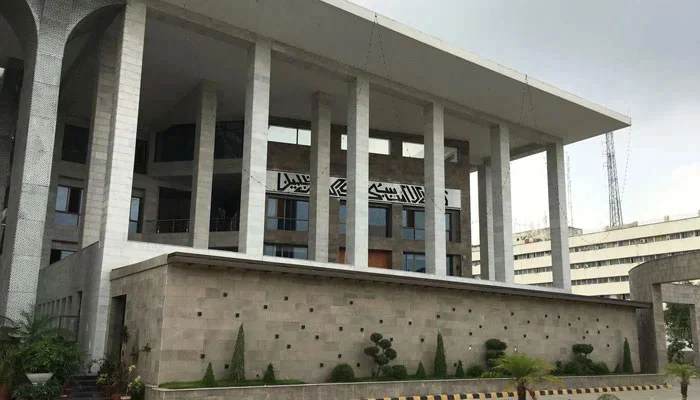Imran Khan, the Prime Minister of Pakistan, recently appeared before the Supreme Court (SC) via video link for the National Accountability Bureau (NAB) amendments case hearing. This development has sparked significant interest and debate across the nation. The case revolves around proposed amendments to the NAB ordinance, which has been a contentious issue in Pakistan’s political landscape.
Khan’s virtual:
appearance before the SC underscores the gravity of the matter and the importance attached to it by the highest echelons of the government. It signifies a commitment to transparency and accountability, principles that Khan’s administration has consistently advocated for since coming into power.
The NAB :ordinance has been a subject of intense scrutiny and criticism, with stakeholders from various quarters expressing divergent views on its efficacy and fairness. The proposed amendments seek to address some of these concerns while ensuring that the accountability process remains robust and impartial.
Khan’s personal: involvement in the case highlights his dedication to upholding the rule of law and ensuring that institutions function without undue influence or interference. By appearing before the SC, he demonstrates a willingness to subject himself and his government to judicial scrutiny, a move that reinforces democratic values and principles.
The decision to utilize a video link for Khan’s appearance is emblematic of the changing dynamics of governance in the digital age. It reflects the adaptation of traditional processes to modern technology, facilitating greater accessibility and efficiency in the conduct of judicial proceedings.
However:
Khan’s appearance before the SC also raises questions about the broader implications of executive involvement in judicial matters. While his participation may be seen as a positive step towards accountability, some critics argue that it could set a precedent for political interference in the judiciary.
The NAB amendments case has wider implications for Pakistan’s democratic framework and governance structure. It touches upon fundamental issues of transparency, accountability, and the balance of power between different branches of government.
The outcome of the case is likely to have far-reaching consequences for Pakistan’s political landscape, influencing the trajectory of governance and shaping public perception of the ruling administration. As such, it is being closely watched by political observers, civil society organizations, and the general populace.
Khan’s appearance before the SC comes at a time of heightened political tension and polarization in Pakistan. The country has been grappling with a range of challenges, including economic instability, security threats, and social unrest, all of which have contributed to a sense of uncertainty and volatility.
In this context, the NAB amendments case has emerged as a focal point for debates surrounding governance and accountability. It has become a battleground for competing political forces, each seeking to advance its own agenda and interests.
The SC, as the custodian of justice and the rule of law, bears the responsibility of adjudicating this contentious issue in a fair and impartial manner. Its decision will not only impact the fate of the NAB amendments but also shape the future trajectory of Pakistan’s democracy.
Khan’s decision to personally engage with the judicial process underscores his commitment to democratic principles and institutional integrity. It sends a powerful message about the government’s willingness to abide by the rule of law and respect the independence of the judiciary.
At the same time, it highlights the delicate balance between executive authority and judicial oversight in a democratic system. While government officials must be held accountable for their actions, it is essential to uphold the principles of separation of powers and avoid any undue interference in the judiciary’s functioning.
As the NAB amendments case progresses:
It is imperative for all stakeholders to prioritize the interests of the nation above partisan politics. Constructive dialogue and cooperation between the executive, legislative, and judicial branches are essential to ensure that governance remains transparent, accountable, and responsive to the needs of the people.
Imran Khan’s appearance before the SC via video link for the NAB amendments case hearing underscores the significance of the issue and the government’s commitment to upholding the rule of law. It reflects the complexities of governance in a democratic society and highlights the need for collective efforts to strengthen democratic institutions and processes. The outcome of the case will have profound implications for Pakistan’s political landscape and the future of its democracy.



